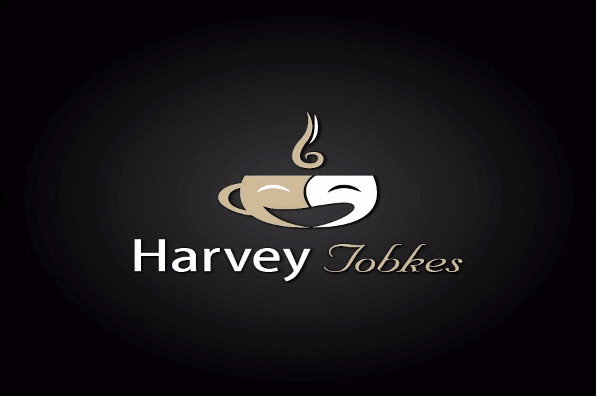FRANK SINATRA – BEST OF THE BEST
————– ————–
————–
Written by Jenifer Siegel
As it turns out, Sinatra’s cozy relations with mobsters may have put him in a position to help members of Haganah, the pre-state Zionist military organization, smuggle about $1 million.
“The irony,” Swan said, “is the intersection of those two things: The Copacabana Club, which was very much run and controlled by the same Luciano-related New York mafia crowd that Sinatra had become enmeshed with, happened to be next door to Hotel 14… [which] the members of the Haganah cell [were] operating out of. So it was a very small world, and Sinatra was at the intersection.”
Swan’s book, co-written with her husband, Anthony Summers, generally shines a light on Sinatra’s life-long commitment to fighting antisemitism and on his activism on behalf of Israel, which has been well documented over the years. The entertainer — who died in 1998 at the age of 82 — sang at an “Action for Palestine” rally as early as 1947, sat on the board of trustees of the Simon Wiesenthal Center, and donated money to Jerusalem’s Hebrew University, which honored him by dedicating the Frank Sinatra International Student Center. (The student center made headlines when terrorists bombed it in 2002, killing nine people.)
On a personal level, Sinatra protected his Jewish friends: According to “The Life,” he once responded to an antisemitic remark at a party by simply punching the offender.
The authors of the new Sinatra book trace the singer’s empathy for minorities, including blacks and Jews, back to his childhood. In addition to his early friendship with the coffee cake-wielding Mrs. Golden (whom he one day would honor by buying a quarter of a million dollars’ worth of Israel bonds), Sinatra personally encountered the scourge of ethnic prejudice, and he never forgot his pain.
Italian Americans “were treated as badly in their own way and in their own time and place” as the Jews, blacks and the Irish, Swan said. As a boy, Sinatra “would walk those little streets” in Hoboken and “hear people say things like, ‘Get the wop. Get the kike.’ Because of his temperament, those became fighting words. He really got the idea that ‘these people are like me.’ He never deviated from that.”
The entertainment legend played a Jewish pilot in “Cast a Giant Shadow,” the 1966 film starring friend Kirk Douglas as Mickey Marcus, a real-life Jewish American colonel who fought and died in Israel’s war for independence.
It could be seen as a case of art imitating life: In one of the book’s most colorful passages, Summers and Swan describe how the real Sinatra helped Israel win the war by serving as a one-time money-runner for Teddy Kolleck, a member of the Haganah, who later served several decades as mayor of Jerusalem.
According to Kolleck’s autobiography, in March 1948 he was trying to circumvent an arms boycott that President Harry Truman had imposed on the Jewish fighters in Palestine, and he needed to smuggle about $1 million in cash to an Irish ship captain docked in the Port of New York. The young Kolleck spotted Sinatra at the bar and, afraid of being intercepted by federal agents, asked for help. In the early hours of the morning, the singer went out the back door with the money in a paper bag and successfully delivered it to the pier.
Swan said Sinatra’s bold move was consistent with his gutsy and impulsive personality. She noted that he also, on occasion, smuggled money for the Italian mob.
The star’s willingness to help the mafia and the Zionists alike is just one example of how he was “this complex man… [with] the good and the bad in him,” Swan said. He was a “passionate human being and having his own set of convictions, his own morality, [and a sense] for right or wrong, that’s what he went with.”
Sinatra’s independence turned him into one of the great champions of civil rights as well as Jewish causes. The singer spoke publicly about the need for racial tolerance beginning in the 1940s. He headlined National Association for the Advancement of Colored People fund raisers in the 1960s and used his influence to ensure equal treatment for friends and fellow performers who were black.
Still, Swan said, even when Sinatra was fighting to help his friends in the black or Jewish communities, he couldn’t quite put away his volatile personality. As is his signature song, the Hollywood legend did it “his way” till the end:
“As late as 1979, Sinatra raged over the fact that [in California] a Palm Springs cemetery official declared he could not arrange the burial of a deceased Jewish friend over the Thanksgiving holiday,” Swan wrote in an e-mail message to the Forward. “Though in his mid 60s, Sinatra declared that he was going to punch the offending official, [adding], ‘and if he’s too old, I’ll punch his son in the nose!'”
Source: article_display.aspx?articleID=1458&printerfriendly=yes
About this entry
You’re currently reading “FRANK SINATRA – BEST OF THE BEST,” an entry on Harvey Tobkes.
- Published:
- 01.21.12 0:23
- Category:
- Interesting Article


No comments
Jump to comment form | comments rss [?] | trackback uri [?]